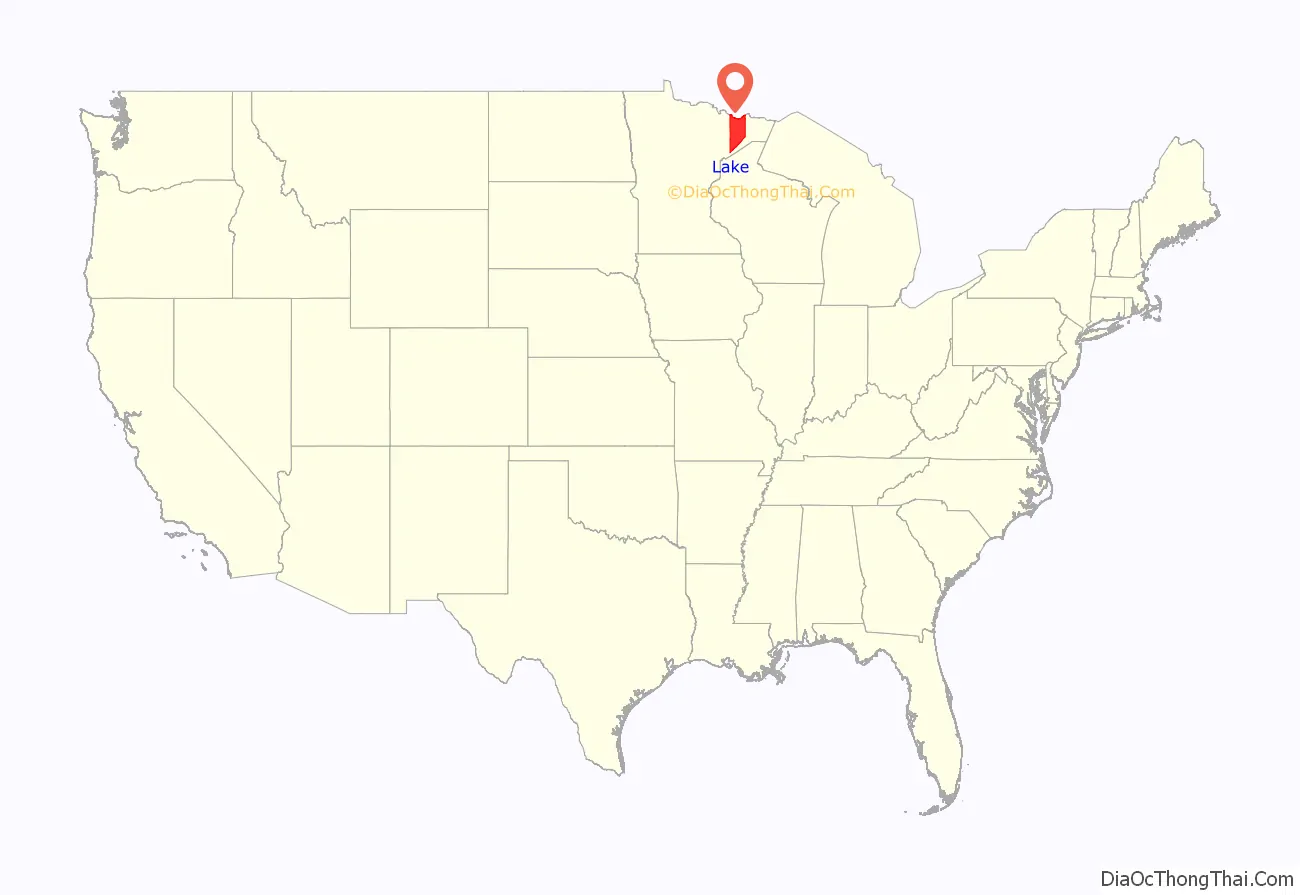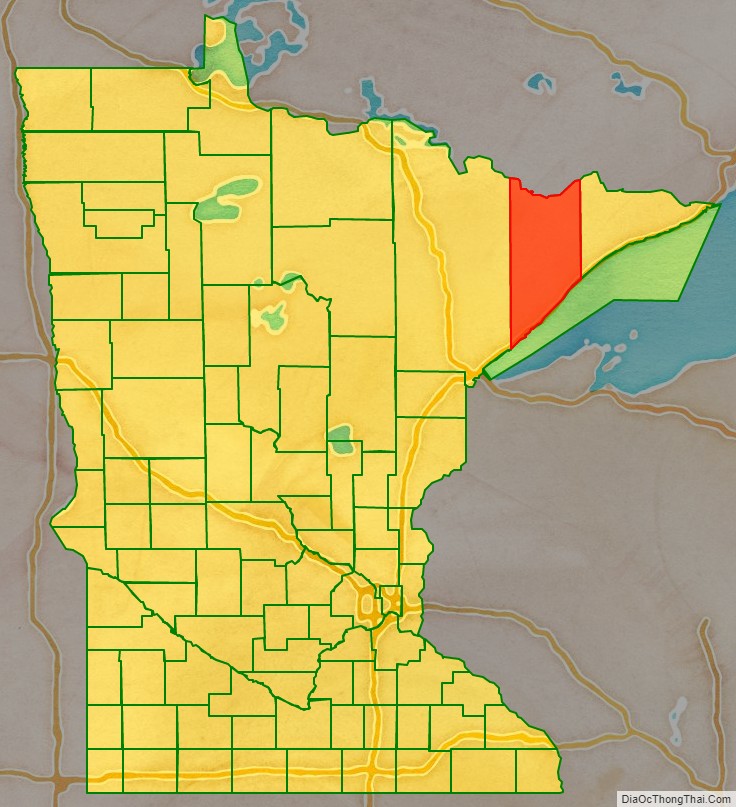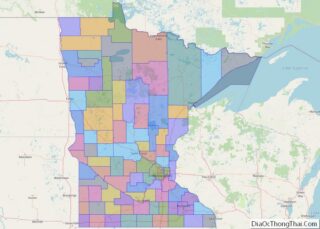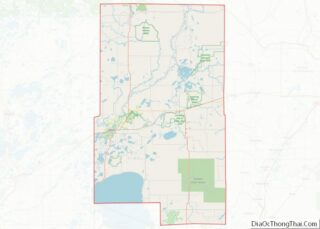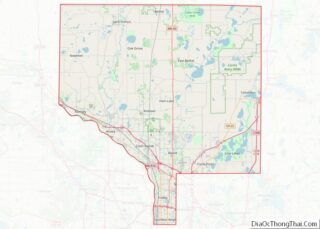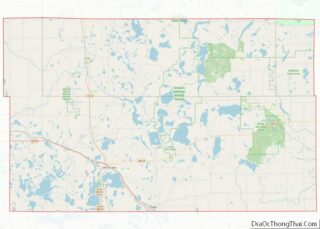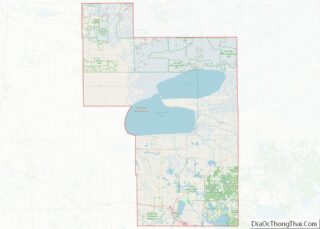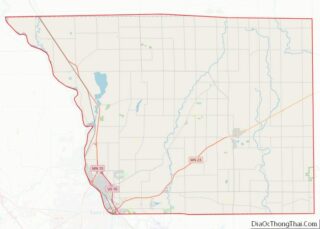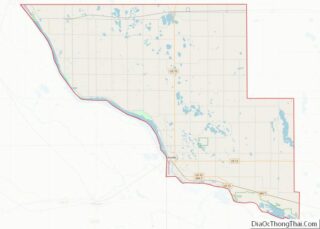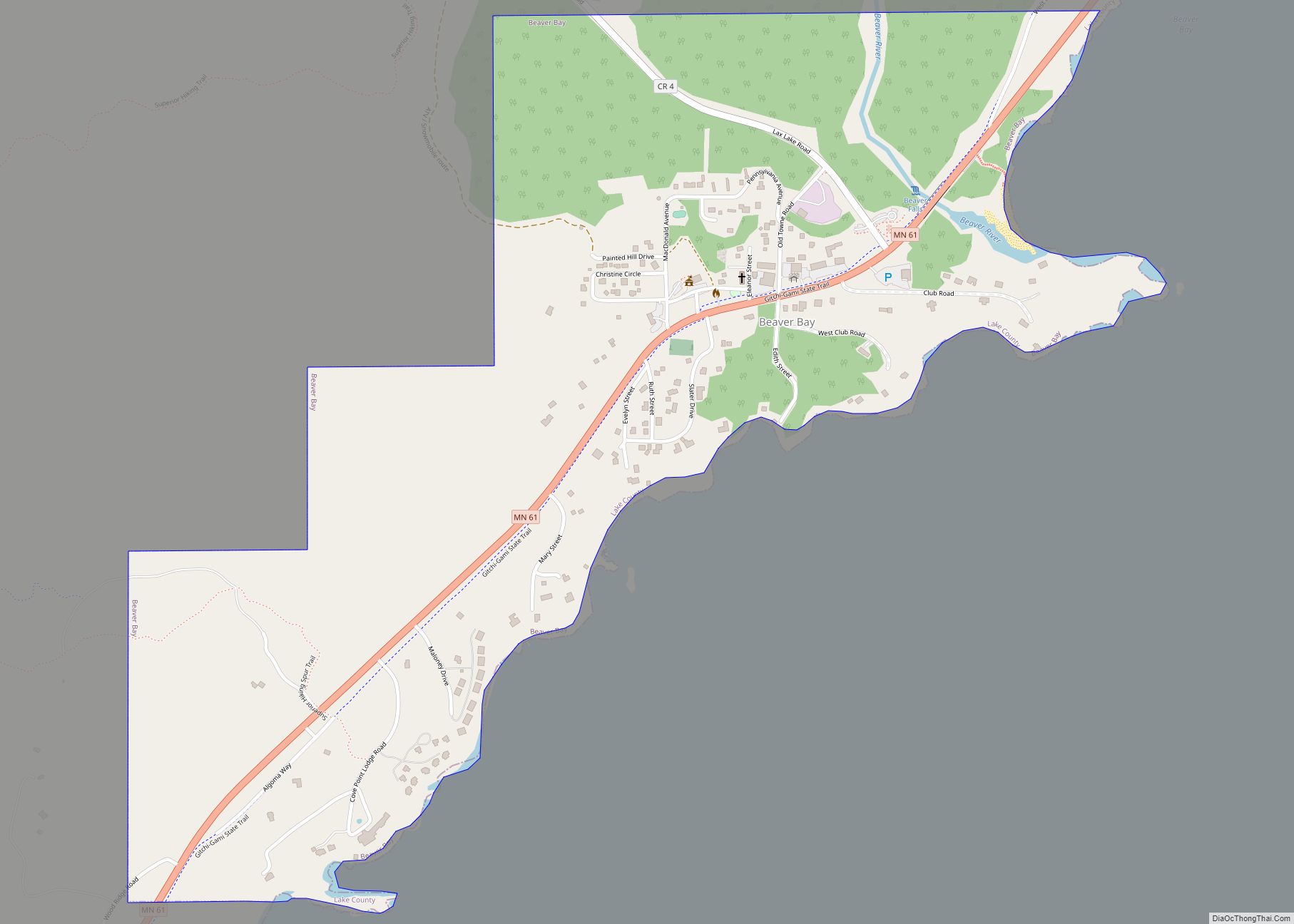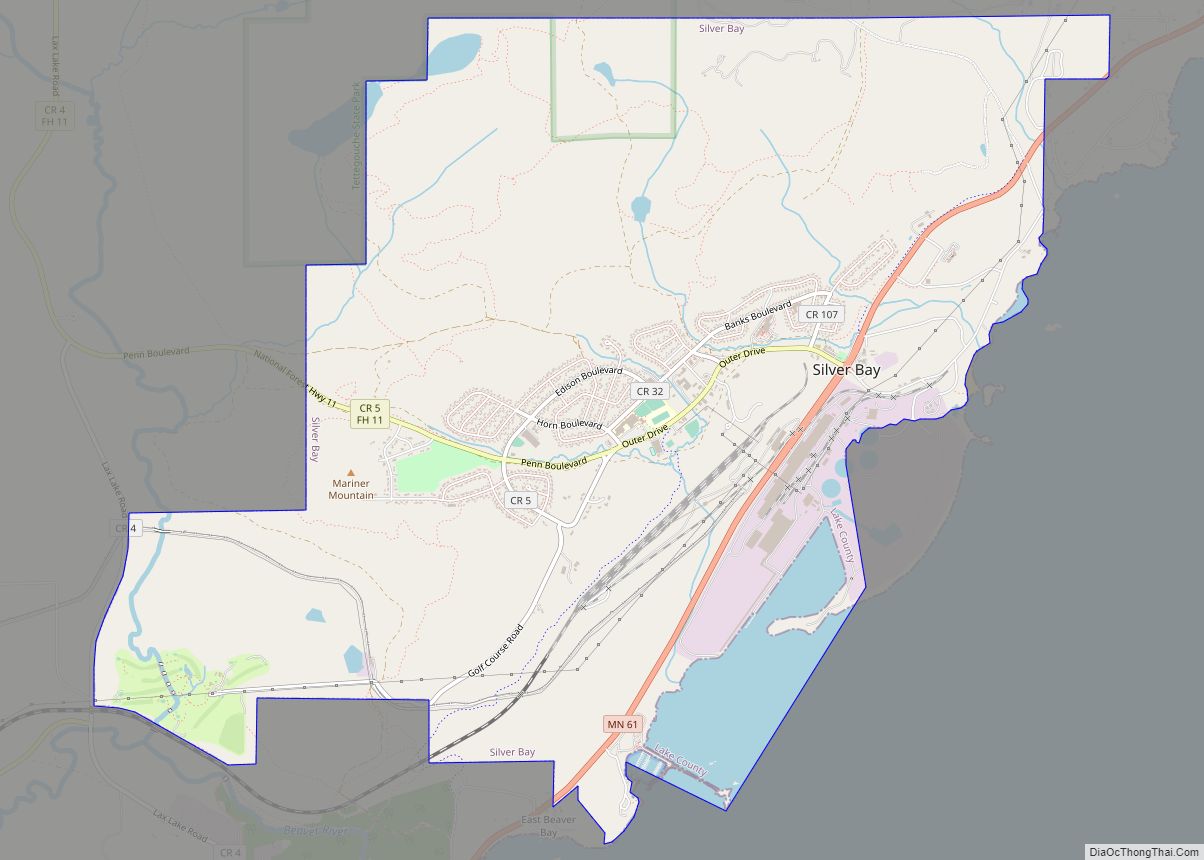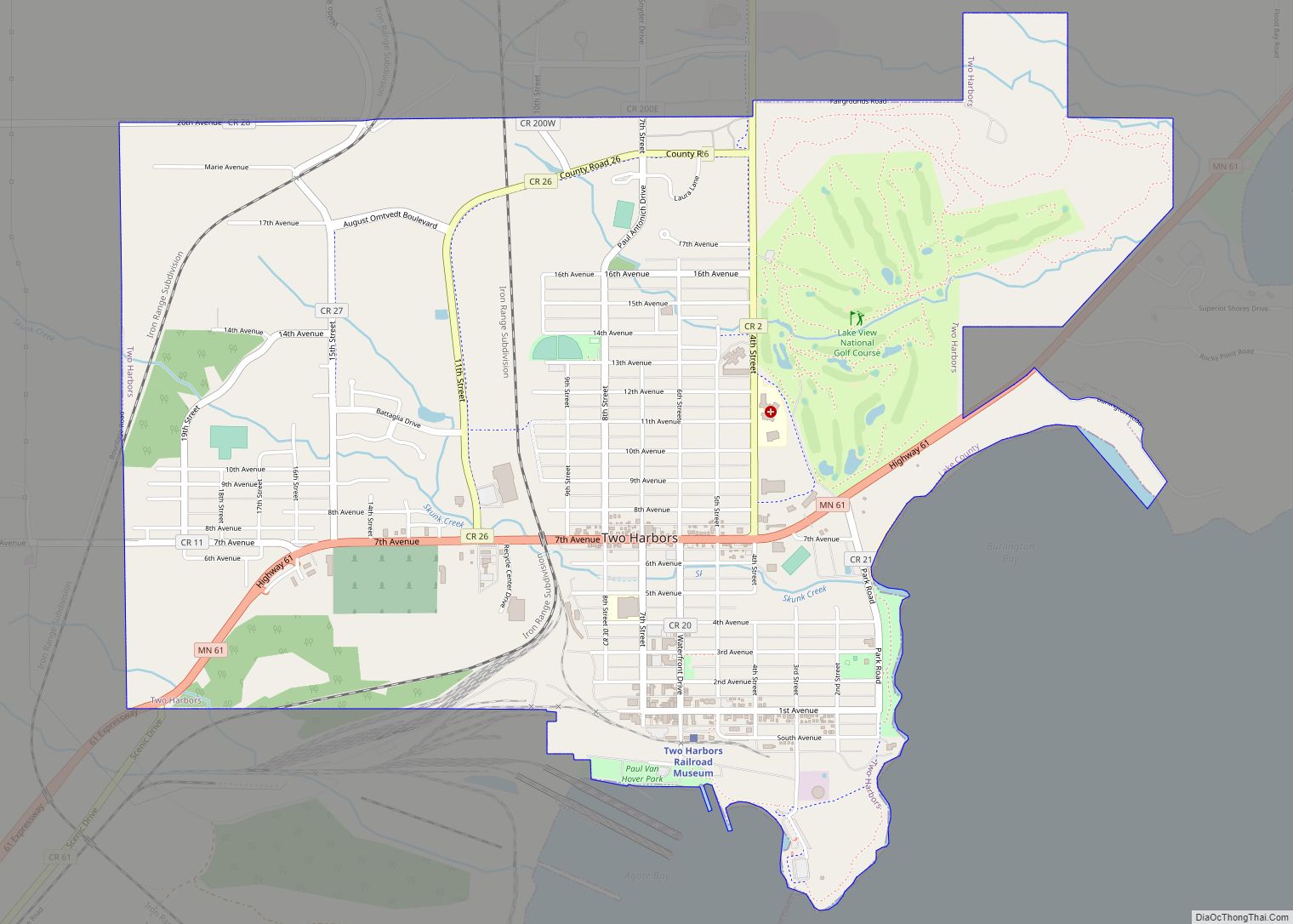Lake County is a county in the U.S. state of Minnesota. As of the 2020 census, the population was 10,905. Its county seat is Two Harbors.
| Name: | Lake County |
|---|---|
| FIPS code: | 27-075 |
| State: | Minnesota |
| Founded: | March 1, 1856 |
| Named for: | Lake Superior |
| Seat: | Two Harbors |
| Largest city: | Two Harbors |
| Total Area: | 2,991 sq mi (7,750 km²) |
| Land Area: | 2,109 sq mi (5,460 km²) |
| Total Population: | 10,905 |
| Population Density: | 3.6/sq mi (1.4/km²) |
| Time zone: | UTC−6 (Central) |
| Summer Time Zone (DST): | UTC−5 (CDT) |
| Website: | www.co.lake.mn.us |
Lake County location map. Where is Lake County?
History
Prior to the arrival of Europeans, the area had long been inhabited by Native American groups. At the time of European contact, the principal Native American groups in the region were the Dakota (Sioux) and Ojibwe (also called Anishinabe or Chippewa). The economy of these groups was based on hunting, fishing and gathering, with wild rice being of particular importance. The first Europeans to explore the area were the French in the late 17th century who were followed by trappers, fur traders, missionaries, and explorers.
The Wisconsin Territory was established by the Federal Government effective July 3, 1836, and existed until its eastern portion was granted statehood (as Wisconsin) in 1848. Therefore, the Federal Government set up the Minnesota Territory effective March 3, 1849. The newly organized territorial legislature created nine counties across the territory in October of that year. One of those original counties, Itasca, had its eastern section partitioned off on February 20, 1855 into two new counties: the western part was designated Newton and the eastern part was named Superior County. The territorial legislature returned to the matter on March 3, changing Superior County to Saint Louis County. Then on March 1, 1856, the county name was again changed, to Lake County, and the “Saint Louis County” name was given to the previous Newton County. With the new name came the designation of county seat at Beaver Bay, which had first been platted in 1856. The county’s boundaries were altered in 1874, when its eastern part was partitioned off to create Cook County.
In 1868, iron ore was discovered on the Vermilion Range by George Stuntz. A spur of the Duluth and Iron Range Railroad was extended to the Lake Superior shore, and a settlement quickly sprang up at the terminus. This settlement was incorporated as a village (Two Harbors) on March 9, 1888, and that same year a vote was taken to transfer the county seat from Beaver Bay to Two Harbors (1888).
Commercial fishing on Lake Superior became important during the late 1880s, spurred by the arrival of Swedish and Norwegian immigrants to the North Shore. In 1890, the Merritt brothers discovered the Mesabi Range. The Two Harbors Lighthouse was built on Agate Bay in 1892. Ten years later, five Two Harbors businessmen signed the articles of incorporation for a new mining company named 3M. Today, 3M Corporation has over 70,000 employees worldwide and produces more than 50,000 adhesive household products, now has its headquarters in Saint Paul.
In 1906, the Court House, which stands to this day, was built. In 1907, one of the nation’s first steel ore docks was built in Two Harbors. In 1944, one of the first HMOs in the United States was created in Lake County to serve railroad employees. A second iron ore boom took place in the 1950s with the development of the taconite beneficiation process for turning lean, low-grade iron ore into a shippable product.
In 2021, the Greenwood Fire burned over 10,500 acres of the county southwest of Isabella, beginning near Greenwood Lake.
Lake County Road Map
Geography
Lake County lies on the north side of Minnesota. Its north border abuts the south border of the province of Ontario, Canada, and its south border is formed by Lake Superior. Its terrain consists of rolling mountains and hills, heavily wooded, and dotted with lakes and ponds. The terrain slopes both ways from a crestline that runs from its northeast line to its southwest line; the county’s highest point is Stony Tower Hill at 2,301′ ASL. The county has a total area of 2,991 square miles (7,750 km), of which 2,109 square miles (5,460 km) is land and 881 square miles (2,280 km) (29%) is water. It is the fifth-largest county in Minnesota by area.
Lake County is located in the Arrowhead Region of Northeastern Minnesota.
Major highways
- Minnesota State Highway 1
- Minnesota State Highway 61
- Minnesota State Highway 169
- List of county roads
Adjacent counties
- Rainy River District, Ontario – north
- Cook County – east
- Ashland County, Wisconsin – southeast (across Lake Superior)
- Bayfield County, Wisconsin – south (across Lake Superior)
- Douglas County, Wisconsin – south (across Lake Superior)
- Saint Louis County – west
Protected areas
- Finland State Forest
- George H. Crosby Manitou State Park
- Gooseberry Falls State Park
- Sand Lake Peatland Scientific and Natural Area
- Split Rock Lighthouse State Park
- Superior National Forest (part)
- Boundary Waters Canoe Area Wilderness (part)
- Tettegouche State Park
